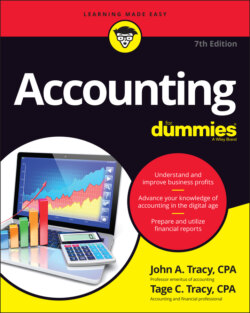Читать книгу Accounting For Dummies - John A. Tracy - Страница 54
Looking at who makes the standards
ОглавлениеWho are the authoritative bodies that set the standards for financial accounting and reporting? In the United States, the highest-ranking authority in the private (nongovernment) sector for making pronouncements on accounting and financial reporting standards — and for keeping these standards up to date — is the Financial Accounting Standards Board (FASB). This rulemaking body has developed a codification of all its pronouncements. This is where accountants look to first.
Outside the United States, the main authoritative accounting-standards setter is the International Accounting Standards Board (IASB), which is based in London. The IASB was founded in 2001. More than 8,000 public companies have their securities listed on the several stock exchanges in the European Union (EU) countries. In many regards, the IASB operates in a manner similar to the Financial Accounting Standards Board (FASB) in the United States, and the two have very similar missions. The IASB has already issued many standards, which are called International Financial Reporting Standards. Without going into details, FASB and IASB are not in perfect harmony (even though congruence of their standards was the original goal of the two organizations).
Also, in the United States, the federal Securities and Exchange Commission (SEC) has broad powers over accounting and financial reporting standards for companies whose securities (stocks and bonds) are publicly traded. Actually, because it derives its authority from federal securities laws that govern the public issuance and trading in securities, the SEC outranks the FASB. The SEC has on occasion overridden the FASB but not very often.
Consider taking the time to Google the acronyms of these three authoritative sources of financial accounting standards. You’ll find which particular financial accounting standards and problem areas are under active review and development. In late 2015, for instance, lease accounting and revenue accounting were under active review and transition to new standards, to say nothing about a host of other financial accounting problems (for example, how to account for derivatives).
